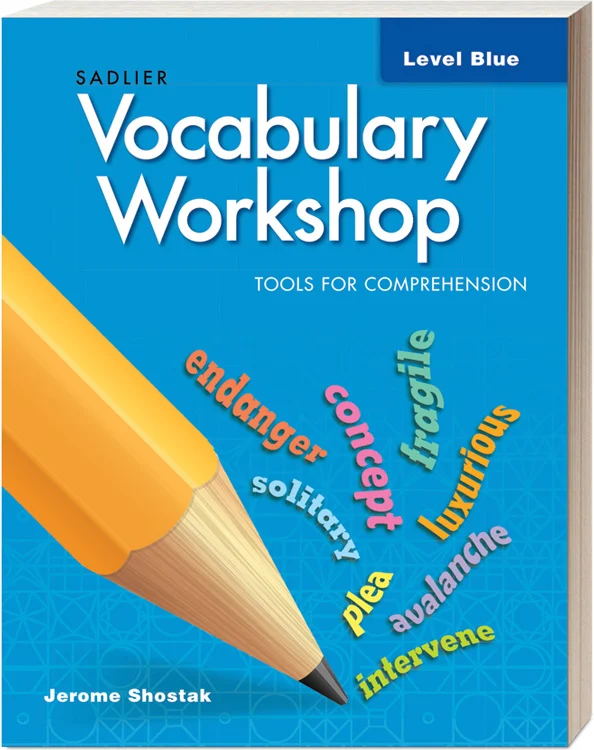Introducing you to a journey of language enrichment and self-improvement! In this guide, we’ll explore practical strategies and resources aimed to improve vocabulary and strengthen your word bank. Whether you’re a language enthusiast seeking to expand your linguistic repertoire or a student looking to ace your next exam, these tips are designed to make vocabulary acquisition both accessible and enjoyable. From the importance of regular reading to the implementation of effective learning techniques, we’ll delve into various facets of vocabulary development to equip you with the tools needed to succeed. So, let’s embark on this enlightening journey together and unlock the power of words!
- 7 Practical Strategies for Vocabulary Growth
- How Can One Develop a Habit of Learning New Words Regularly?
- Examples of Practical Exercises And Tools to Expand Your Word Bank.
- Are There Any Specific Techniques for Retaining New Words in Memory?
- Conclusion
7 Practical Strategies for Vocabulary Growth
“Vocabulary is a bank deposit in the brain. The more words you know, the richer you are”
Elevating your vocabulary and expanding your word bank involves engaging in a variety of activities that expose you to new words and reinforce your understanding of them. Here’s a more detailed explanation of some practical strategies:
1. Daily Reading:
Reading regularly exposes you to a wide range of vocabulary in different contexts. Choose materials that interest you, whether it’s books, articles, or online content. Make a habit of noting down unfamiliar words and looking up their meanings to enhance comprehension and retention.
As for the types of materials that are most beneficial for improving vocabulary, it largely depends on your interests, proficiency level, and learning goals. However, here are some general recommendations:
Books:
Fiction and non-fiction books cover a diverse range of topics and writing styles, exposing you to a broad spectrum of vocabulary. Choose books that align with your interests and challenge you without being too overwhelming.
Articles and Essays:
Reading articles from newspapers, magazines, and reputable websites exposes you to current events, trends, and specialized vocabulary related to various fields such as science, technology, politics, and culture.
Literary Classics:
Classic literature often features rich language and complex vocabulary that can significantly expand your word bank. Consider reading works by renowned authors from different periods and cultures.
Vocabulary-Building Texts:
Some materials are specifically designed to help learners expand their vocabulary, such as vocabulary textbooks, workbooks, and study guides. These resources often provide explanations, examples, and exercises to reinforce learning.
Poetry:
Poetry exposes you to unique language structures, figurative language, and poetic devices that can enhance your appreciation for language and deepen your understanding of word meanings.
Diverse Sources:
Explore a variety of sources beyond traditional print materials, including online articles, blogs, podcasts, and even social media platforms. Each source offers its vocabulary and style, contributing to a well-rounded vocabulary development.
2. Vocabulary Apps:
There are numerous apps available that offer interactive ways to learn new words. These apps often provide exercises, quizzes, and flashcards tailored to your skill level and learning style. Incorporating just a few minutes of app-based learning into your daily routine can yield significant improvements in vocabulary over time.
3. Word Journal:
Keeping a word journal allows you to track and review the new words you encounter. Write down the word, its definition, and a sentence or two demonstrating its usage. Regularly revisiting your word journal reinforces learning and helps commit new vocabulary to memory.
4. Flashcards:
Create flashcards with a word on one side and its definition on the other. Review these flashcards regularly, testing yourself on both recognition and recall. Flashcards are a portable and efficient way to reinforce vocabulary learning during spare moments throughout the day.
5. Word Games:
Engaging in word games such as crossword puzzles, Scrabble, or word search puzzles provides a fun and stimulating way to expand your vocabulary. These games challenge you to think critically about word meanings, associations, and relationships while reinforcing spelling and pronunciation.
6. Active Usage:
Actively using new words in conversation, writing, or even thinking aloud helps solidify your understanding and retention of them. Incorporate newly learned words into your daily communication and writing tasks to reinforce their usage and meaning.
7. Seeking Feedback:
Solicit feedback from peers, teachers, or language partners on your use of new words. Constructive feedback can help identify areas for improvement and reinforce correct usage, enhancing your
By incorporating these practical strategies into your daily routine, you can gradually elevate your vocabulary and expand your word bank sustainably and effectively. The key is consistency, active engagement, and a willingness to explore and learn from various language sources and contexts.
How Can One Develop a Habit of Learning New Words Regularly?
Developing a habit of learning new words regularly involves incorporating simple practices into your daily routine. Here are some steps to help you do that:
Set Goals:
Decide how many new words you want to learn each day or week. Start with a manageable number that you can easily incorporate into your schedule.
Create a Learning Routine:
Designate specific times during the day for learning new words. It could be during your morning commute, lunch break, or before bed. Consistency is key to forming a habit.
Use Reminder Tools:
Set reminders on your phone or place sticky notes in visible areas to prompt you to learn new words regularly. This helps reinforce the habit until it becomes automatic.
Utilize Spare Moments:
Make use of idle time throughout the day to learn new words. Carry a pocket dictionary or use vocabulary apps on your phone to study while waiting in line or during short breaks.
Make it Fun:
Engage in activities that make learning new words enjoyable. Play word games, solve puzzles, or participate in vocabulary challenges with friends or family members.
Variety is Key:
Explore different sources for new words, such as books, articles, podcasts, or online resources. Exposing yourself to diverse content exposes you to a wider range of vocabulary.
Review Regularly:
Set aside time to review previously learned words to reinforce your memory. Flashcards or word journals can be useful tools for this purpose.
Reward Yourself:
Celebrate your progress and accomplishments when you reach your learning goals. Treat yourself to something enjoyable as a reward for sticking to your learning routine.
By following these steps consistently, you can develop a habit of learning new words regularly and steadily expand your vocabulary over time.
And do not forget to “Live as if you were to die tomorrow. Learn as if you were to live forever.“
Examples of Practical Exercises And Tools to Expand Your Word Bank.
“Improve 1% better everyday, by the end of the year you’ll be 365% better”
Here are some practical exercises and activities to help expand your word bank:
Word of the Day:
Choose a new word each day and make an effort to use it in conversation or writing throughout the day. You can find word-of-the-day calendars, apps, or websites to help with this.
Subscriptions to services like Wordsmith or Merriam-Webster’s Word of the Day deliver a new word to your inbox daily with its definition and usage examples.

Contextual Reading:
Read articles, books, or stories that are slightly above your current reading level. When you encounter unfamiliar words, try to infer their meanings from the context before looking them up.
Websites such as Merriam-Webster and Oxford Learner’s Dictionaries provide definitions, pronunciation guides, and example sentences.

Vocabulary Builder Apps:
Use vocabulary-building apps that offer exercises, quizzes, and games to help you interactively learn new words. Some popular options include Quizlet, Duolingo, and Vocabulary.com.

Synonym and Antonym Practice:
Make lists of synonyms (words with similar meanings) and antonyms (words with opposite meanings) for words you already know. This helps you expand your vocabulary by learning related words.
Thesauruses like Thesaurus.com help users find synonyms and antonyms.

Sentence Completion:
Create sentences using new words you’ve learned to ensure you understand their meanings and how to use them correctly in context.
Resources like “Word Power Made Easy” by Norman Lewis or “Vocabulary Workshop” by Sadlier offer lists of words, definitions, example sentences, and exercises.

Language Learning Websites:
Platforms such as Vocabulary.com, FluentU, and BBC Learning English offer vocabulary-building resources, quizzes, videos, and articles tailored to learners of different proficiency levels and interests.

Podcasts and Audiobooks:
Podcasts such as “The English We Speak” by BBC Learning English or audiobooks like “The Great Gatsby” by F. Scott Fitzgerald expose you to spoken vocabulary and pronunciation variations.

Writing Prompts:
Use writing prompts to practice incorporating new words into creative writing. Challenge yourself to use a certain number of new words in each paragraph or story you write.
By incorporating these exercises and activities into your daily routine, you can actively expand your word bank and improve your vocabulary skills over time.
Are There Any Specific Techniques for Retaining New Words in Memory?
There are specific techniques that can help you retain new words in memory more effectively. Here are some strategies:
Use Mnemonics:
Create associations or mental images that link new words to familiar concepts or visualizations. Mnemonics can make words easier to remember by providing memorable cues.
Repetition and Review:
Review newly learned words regularly to reinforce them in your memory. Flashcards, spaced repetition systems, or dedicated study sessions can help ensure that words stay fresh in your mind.
Contextual Learning:
Learn new words in context by encountering them in sentences or passages rather than in isolation. Understanding how a word is used in context enhances comprehension and aids in memory retention.
Use the Word:
Actively use new words in conversation, writing, or thinking to integrate them into your vocabulary and reinforce their meanings. The more you engage with a word, the more likely you are to remember it.
Create Personal Examples:
Associate new words with personal experiences or examples from your own life. This personal connection makes the word more memorable and facilitates recall.
Word Maps or Semantic Networks:
Create word maps or semantic networks to visually organize and connect related words and concepts. Seeing the relationships between words can aid in memory retention and deepen your understanding of word meanings.
Apply Spaced Repetition:
Space out your practice sessions over time, gradually increasing the intervals between reviews. Spaced repetition has been shown to enhance long-term retention by optimizing the timing of review sessions.
Teach Someone Else:
Teach new words to someone else or explain their meanings and usage. Teaching reinforces your understanding and memory of the words while helping someone else learn.
Engage Multiple Senses:
Try to engage multiple senses when learning new words, such as writing them down, saying them aloud, or associating them with visual images. The more senses you involve, the stronger the memory connections can become.
Use Technology:
Utilize vocabulary apps, online quizzes, or digital flashcards that incorporate interactive features to make learning more engaging and memorable.
By incorporating these techniques into your vocabulary learning routine, you can improve your ability to retain new words in memory and build a strong and diverse vocabulary over time.
Conclusion
In summary, boosting your vocabulary is a journey worth taking, and it’s simpler than you might think. Reading regularly is key, as it exposes you to new words in different contexts. Beyond that, practical strategies like using vocabulary apps, playing word games, and even setting word-of-the-day challenges can make learning fun and effective.
Developing a habit of learning new words regularly is important too. Setting goals, creating reminders, and finding enjoyable ways to learn all play a part. Plus, there are plenty of exercises you can try, like word associations, sentence completion, and writing prompts.
To make sure those new words stick, techniques like using mnemonics, repeating, and practicing in context can help. And don’t forget about the tools available, from vocabulary apps to language exchange platforms—they’re all there to support your learning journey.
In short, by incorporating these simple strategies and tools into your routine, you can build a stronger vocabulary and boost your confidence in expressing yourself effectively.
Explore further for additional insights and details! Delve into this rich trove of information awaiting your discovery.
Join this now to improve vocabulary:





